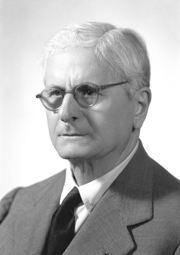Arturo Labriola
- View a machine-translated version of the Italian article.
- Machine translation, like DeepL or Google Translate, is a useful starting point for translations, but translators must revise errors as necessary and confirm that the translation is accurate, rather than simply copy-pasting machine-translated text into the English Wikipedia.
- Do not translate text that appears unreliable or low-quality. If possible, verify the text with references provided in the foreign-language article.
- You must provide copyright attribution in the edit summary accompanying your translation by providing an interlanguage link to the source of your translation. A model attribution edit summary is
Content in this edit is translated from the existing Italian Wikipedia article at [[:it:Arturo Labriola]]; see its history for attribution. - You may also add the template
{{Translated|it|Arturo Labriola}}to the talk page. - For more guidance, see Wikipedia:Translation.
Arturo Labriola | |
|---|---|
 | |
| Minister of Labor and Social Security | |
| In office 14 July 1921 – 15 June 1920 | |
| Prime Minister | Giovanni Giolitti |
| Preceded by | Mario Abbiate |
| Succeeded by | Alberto Beneduce |
| Interim Grand Master of the Grand Orient (In exile) | |
| In office 23 June 1930 – 29 November 1931 | |
| Preceded by | Eugenio Chiesa |
| Succeeded by | Alessandro Tedeschi |
| Personal details | |
| Born | 21 January 1873 Naples, Italy |
| Died | 23 June 1959 Naples, Italy |
| Political party | Fasci Siciliani (1894) PSI (1895-1913) PSRI (1913-1926) PDL (1946-1948) |
| Profession | Politician, Economist |
Arturo Labriola (Italian: [labriˈɔːla]; 21 January 1873 – 23 June 1959) was an Italian revolutionary syndicalist and socialist politician and journalist.
Life
Early political activity (until 1897)
Labriola was born in Naples on 21 January 1873[1] to Luigi Labriola, an artisan. While studying jurisprudence in University of Naples, Arturo Labriola started his political activity. In 1891 he joined the Republican-Socialist University Circle. Between 1892 and 1895, he collaborated on various periodicals: Socialismo Popolare, edited by Carlo Monicelli, Rivista Popolare di Politica, Litteratura e Scienze Sociali, edited by Napoleone Colajanni and Critica Sociale, edited by Filippo Turati. In 1894–1895, Labriola was involved with the Fasci Siciliani and therefore was suspended for one year from university studies. In 1897, Labriola joined Italian Socialist Party (PSI) and fought in the Greco-Turkish War in Crete.[2]
Life in exile (1898–1900)
In May 1898, workers in Milan organized strikes and protests to demonstrate against the government. The riots were brutally repressed: troops fired on demonstrators, and Filippo Turati was arrested, and accused of inspiring the riots. Labriola fled to Geneva in order to elude arrest. There, he taught at University of Geneva and worked with Vilfredo Pareto. Labriola was expelled from Switzerland in the same year and moved to Paris. In Paris he met the socialists Georges Sorel, Hubert Lagardelle and Paul Lafargue.[3]
Revolutionary syndicalist period
He returned to Italy in 1900, and in 1902 published a weekly called Avanguardia Socialista which became the centre of activity for Italian revolutionary syndicalism. From 1910 to 1911 he was one of the leading contributors of La Lupa, a weekly magazine supporting the revolution.[4] He later withdrew his support for revolution, and adopted Marxist Reformism, becoming a member of the Italian Parliament as an independent. Favourable to Italy's participation in World War I, Labriola also served as Minister of Labor in the last of Giovanni Giolitti's cabinets (1920).
An opponent of Fascism, he had to take exile in France after Benito Mussolini came to power, but returned in 1935. In 1946 he was elected member of the Constituent Assembly of Italy as a National Democratic Union candidate. In 1948 he became a senator of the new Republic.
As it was confirmed by the former President of the Grand Orient of Italy, he was one of the eight father constituents belonging to the main Italian Masonic organization.[5]
Works
- La teoria del valore di C. Marx, Studio sul III libro del Capitale (1899)
- Riforme e rivoluzione sociale (1904, 1906)
- Karl Marx, L'Économiste, Le Socialiste (1910)
- Storia di dieci anni (1910)
- La guerra di Tripoli e l'opinione socialista (1912)
- Spiegazioni a me stesso (1945)
References
- ^ Levy, C. (1995). "Labriola, Arturo". In A. Thomas Lane (ed.). Biographical Dictionary of European Labor Leaders. Vol. 1. Westport, Connecticut: Greenwood Publishing Group. p. 529. ISBN 0-313-29899-8.
Born in Naples, Italy, on 21 January 1873
- ^ Levy, C. (1995). "Labriola, Arturo". In A. Thomas Lane (ed.). Biographical Dictionary of European Labor Leaders. Vol. 1. Westport, Connecticut: Greenwood Publishing Group. p. 530. ISBN 0-313-29899-8.
- ^ Levy, C. (1995). "Labriola, Arturo". In A. Thomas Lane (ed.). Biographical Dictionary of European Labor Leaders. Vol. 1. Westport, Connecticut: Greenwood Publishing Group. p. 530. ISBN 0-313-29899-8.
- ^ "La Lupa. Settimanale diretto da Paolo Orano". Fondazione Modigliani. Retrieved 31 October 2021.
- ^ Alberto Statera (9 June 2010). "I massoni di sinistra. Nelle logge sono 4mila" [Freemasons of left wing. In the lodges are 4 thousands]. La Repubblica (in Italian). Archived from the original on 12 June 2010.










